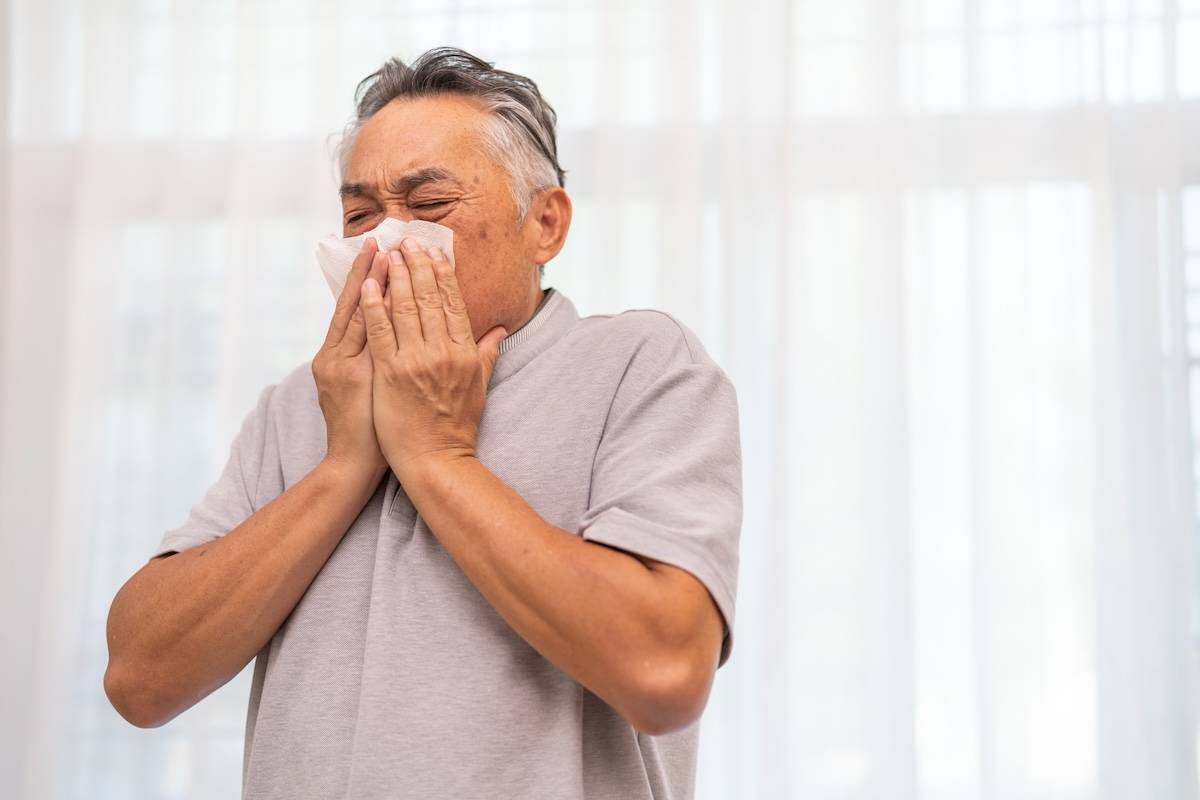Understanding Common Seasonal Illnesses

Health can often feel more fragile during certain parts of the year, especially for older adults. Late winter brings its own set of challenges, with seasonal illnesses like the flu, pneumonia, and allergies becoming more widespread. Understanding these illnesses and taking proactive measures to stay healthy is crucial for older adults.
At Uplands Village, we pride ourselves on providing expert guidance to individuals in our life plan community, empowering them to lead safe, healthy, and vibrant lives. We’re exploring common seasonal illnesses, why older adults face a higher risk, and actionable steps to stay protected.
Understanding Common Seasonal Illnesses
Seasonal illnesses may seem routine, but their impact can be more severe for older adults. Here’s an overview of the most common ailments and their symptoms during late winter.
1. The Flu (Influenza)
Influenza, or the flu, spreads rapidly during the winter months. While younger adults often recover in under a week, the flu can cause serious complications for seniors, including hospitalization or even pneumonia.
Symptoms: Fever, body aches, chills, fatigue, and sore throat.
Causes: Spread primarily through respiratory droplets when an infected person coughs, sneezes, or talks.
2. Pneumonia
Pneumonia, an infection of the lungs, can develop independently or be a complication of the flu. Older adults are at heightened risk due to preexisting health conditions that can weaken the lungs.
Symptoms: Chest pain, persistent cough, difficulty breathing, fever, and chills.
Causes: Bacteria, viruses, or fungi infecting the lungs. Poor immune response in seniors exacerbates vulnerability.
3. Seasonal Allergies
Late winter and early spring bring allergens, like pollen, that can trigger severe allergic reactions or respiratory discomfort. Allergies may overlap with signs of a cold, creating confusion.
Symptoms: Sneezing, runny nose, watery eyes, and congestion.
Causes: Pollen, mold spores, and other environmental triggers.
Understanding the symptoms and knowing what to watch for is the first step toward mitigating the impact of these illnesses on daily life.
Why Seniors Are More Susceptible
Older adults face unique health challenges that make them more vulnerable to seasonal illnesses. Here’s why this occurs and how some risk factors come into play.
A Weaker Immune System
Aging naturally reduces the body’s ability to fight infection. This “immunosenescence” means seniors take more time to recover from illnesses and may experience more severe symptoms.
Chronic Health Conditions
Diabetes, heart disease, and respiratory issues common in older adults can worsen the effects of seasonal illnesses. For instance, the flu can trigger complications like arrhythmias in individuals with underlying heart disease.
Increased Exposure Risks
Older adults living in group settings, such as retirement communities, are often in close proximity to others, increasing their risk of exposure to contagious diseases like the flu.
Prevention Strategies
Prevention is always better than cure, and for older adults, taking specific actions can significantly reduce the chances of contracting seasonal illnesses.
1. Stay Up-to-Date on Vaccinations
Vaccination is one of the most effective ways to guard against seasonal illnesses.
- Flu Vaccine: Ensure you receive the latest flu vaccine annually as strains evolve yearly.
- Pneumonia Vaccine: This vaccine is recommended for those over 65 to protect against bacterial pneumonia.
2. Practice Proper Hygiene
Simple every day habits can prevent the spread of germs:
- Wash your hands regularly with soap and water for at least 20 seconds.
- Avoid touching your face, especially around your mouth, nose, and eyes.
- Use alcohol-based hand sanitizers when soap and water aren’t available.
3. Maintain a Healthy Lifestyle
A strong body is better equipped to fend off illness.
- Eat a nutrient-rich diet with plenty of fruits, vegetables, and whole grains to support immune function.
- Stay active by engaging in light physical activities, like walking or stretching.
- Prioritize sleep—quality rest helps the body recover and fight off infection.
4. Manage Allergens
For those prone to allergies, stay ahead of symptoms by keeping windows closed during high pollen seasons and using an air purifier indoors.
When to Seek Medical Help
Recognizing when to consult a medical professional can prevent seasonal illnesses from escalating into more serious health concerns.
- Flu-Like Symptoms Lasting Over a Week
If symptoms persist or worsen, they could indicate complications like pneumonia or bronchitis.
- High Fever or Severe Pain
Fever above 101°F or intense chest pain warrants immediate attention.
- Shortness of Breath
Any difficulty breathing or sudden wheezing should always be taken seriously.
Don’t hesitate to seek medical advice at the first sign of trouble. Early intervention can make all the difference.
Empower Your Health with Support
By understanding common seasonal illnesses, why older adults are at greater risk, and how to prevent them, you’re already taking the first steps toward staying safe and healthy. At Uplands Village, we provide resources to help individuals remain informed and foster a sense of fellowship in our life plan community that prioritizes well-being. If you have questions or need guidance on maintaining your health, please contact us today. Together, we can ensure you enjoy the best of every season while feeling safe and supported.

